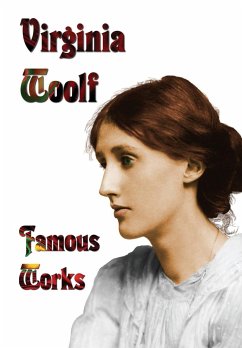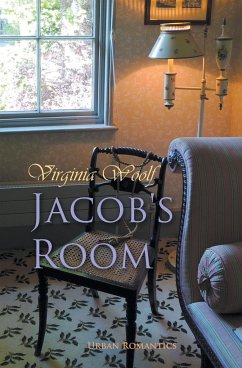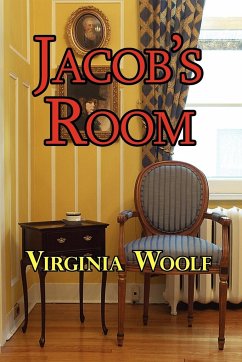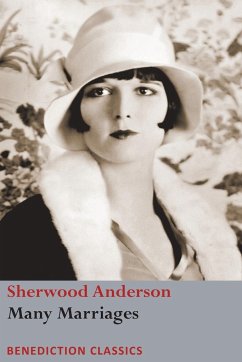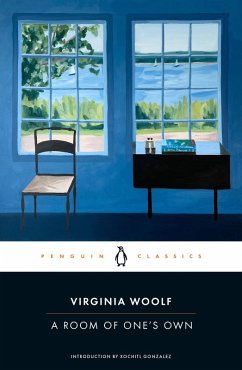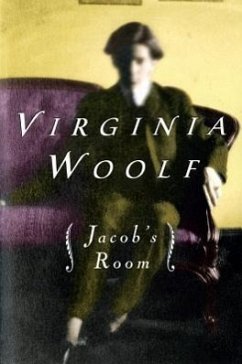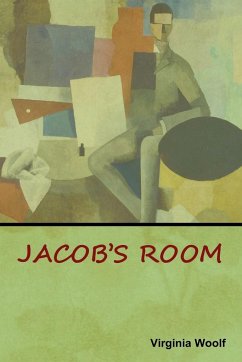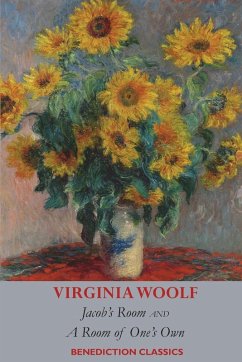
Jacob's Room and A Room of One's Own
Versandkostenfrei!
Versandfertig in 1-2 Wochen
12,99 €
inkl. MwSt.

PAYBACK Punkte
6 °P sammeln!
"Sheer poetry ... it may be dubbed a lyrical novel", The New York Times, of Jacob's Room. "No plainer manifestation of the modernist trend in contemporary English fiction may be found than in Virginia Woolf's Jacob's Room." The New York Times. "No need to hurry. No need to sparkle. No need to be anybody but oneself." Virginia Woolf, A Room of One's Own. "Seldom has the point been driven home more cogently or embellished with wittier comment". The New York Times, of A Room of One's Own. Jacob's Room was Virginia Woolf's first modernist novel. It centers on the character of Jacob Flanders, a lon...
"Sheer poetry ... it may be dubbed a lyrical novel", The New York Times, of Jacob's Room. "No plainer manifestation of the modernist trend in contemporary English fiction may be found than in Virginia Woolf's Jacob's Room." The New York Times. "No need to hurry. No need to sparkle. No need to be anybody but oneself." Virginia Woolf, A Room of One's Own. "Seldom has the point been driven home more cogently or embellished with wittier comment". The New York Times, of A Room of One's Own. Jacob's Room was Virginia Woolf's first modernist novel. It centers on the character of Jacob Flanders, a lonely young man who struggles to reconcile his love of classical culture with the chaotic reality of contemporary society, particularly the turbulence of World War I, and ends with an oblique reference to his death. Nevertheless, the reader leaves with a fine realization of the intrinsic beauty of life and a sense that Jacob has been victorious in his brief wrestling with life. A Room of One's Own is a classic of feminist literature and an important work of literary criticism. Woolf begins with her well-known aphorism, "A woman must have money and a room of her own if she is to write fiction," but then addresses "the great problem of the true nature of woman and the true nature of fiction". She describes the position of women in her society and the past, and how it relates to their creativity, and explains what is required of any man or woman to write great fiction. This erudite extended essay is charmingly conversational. Virginia Woolf was of course a great novelist, but she has influenced literature in many ways. She and her husband Leonard Woolf set up and ran the Hogarth Press, which published works by key modernist writers as well as important works in translation. In their first five years, they published Katherine Mansfield, T. S. Eliot, E. M. Forster, Clive Bell, Roger Fry, and Sigmund Freud, but also rejected James Joyce's Ulysses. She reviewed extensively and wrote on the art of writing and on the form of the novel. Through her stylistic innovations, such as the stream of consciousness, Virginia Woolf, like James Joyce, changed the course of literature.



